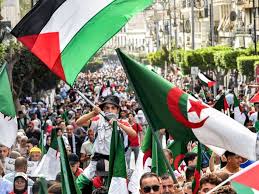U.N. peacekeepers are unlikely to proceed with an agreed withdrawal from Congo’s conflict-torn North Kivu for as long as Rwandan troops remain in the eastern province, the Congolese foreign minister said on Saturday.
North Kivu is battling a two-year insurgency by the Rwanda-backed M23 militia that has displaced more than a million people, and a U.N. report said this week 3,000-4,000 Rwandan troops were fighting the Congolese army with “de facto control” over M23 operations.
Rwanda has in the past denied allegations from Congo and Western powers that it supports M23 with troops and weapons.
On Tuesday, Congo’s government said conditions had not been met for the U.N. mission to leave the province, and Foreign Minister Therese Kayikwamba Wagner said the withdrawal – while still a priority – should take place in an orderly way when conditions allow.
“The current situation with the presence of Rwandan troops, the aggression by Rwanda makes it very difficult to envisage such a situation right now,” she told Reuters in an interview.
“So we are following the evolution of the context in order to find the most suitable moment to start this process.”
Bintou Keita, head of the U.N. mission known as MONUSCO, has said there is no timeline for the pull-out, which was requested by Congolese President Felix Tshisekedi last September.
A first phase saw peacekeepers complete their departure from South Kivu province in June.
The full withdrawal of MONUSCO, which took over from an earlier U.N. peacekeeping operation in 2010 and currently numbers about 10,800 troops, will reshape security operations in mineral-rich eastern Congo, where many armed groups fight over territory and resources.
Mukuru Justice Center activist Millian Nyamoita says most of the bodies are women, and that they ‘don’t know whether they are among the people who were abducted because of the protests.’
Wagner said Congo’s efforts to raise international awareness of Rwanda’s involvement in the M23 conflict were starting to bear fruit, and expressed the hope that targeted sanctions would be imposed as a result.
“Our audiences are becoming more aware of the fact that Rwanda is maybe a peacekeeper in some countries, but it is a warmonger in the Great Lakes region,” she said.
Regarding international pressure, she added that “it is not about people, it is about the decision-makers who have to be held accountable. And this is what we ask for when we talk about sanctions”.
The fighting in North Kivu province has driven more than 1.7 million people from their homes, taking the total number of Congolese displaced by multiple conflicts to a record 7.2 million, according to U.N. estimates.
